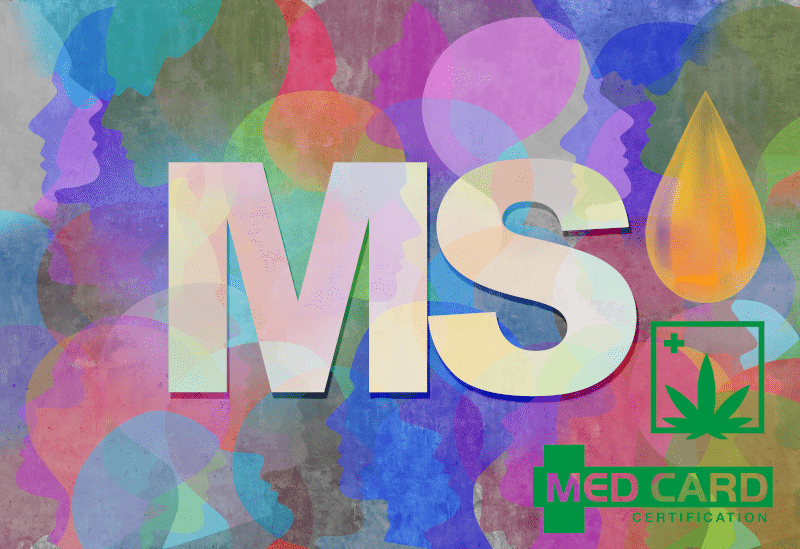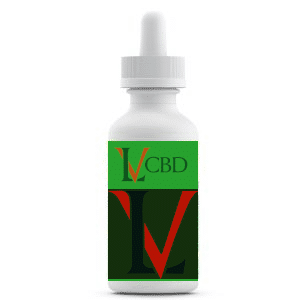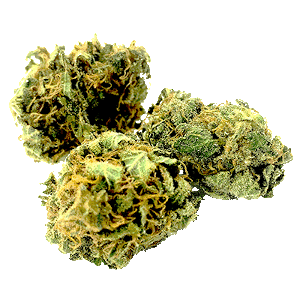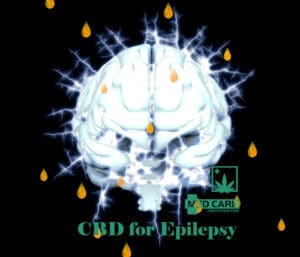
Can CBD oil relieve the symptoms of MS
CBD oils help multiple sclerosis sufferers find some relief from symptoms.
In addition to symptom management, cannabis may also slow down the neurodegenerative processes.
MS and how CBD oil is being used to treat this debilitating condition.
A significant number of encouraging studies indicate the efficacy of CBD oil and other CBD-infused products in the treatment of Multiple Sclerosis.
The full effects have yet to be adequately documented, and more research is required. However, supplementation with CBD is helping thousands of MS sufferers enjoy a higher quality of life and slow the progression of their condition.
What is MS?
A debilitating and often fatal disease, multiple sclerosis, causes the immune system to attack and erode the protective sheath (myelin) that protects neurons. This erosion disrupts the transmission of signals in the central nervous system, eventually causing loss of motor control and coordination.
The symptoms of MS can include muscle weakness, blurred vision, double vision, blindness in one eye, slurred speech, fatigue, dizziness, bowel and bladder dysfunction, numbness, electric shock sensations, and tremors. At this time there is no known cause or cure.
Traditional medicines utilized in treatment have multiple severe side effects and do little to impede the progress of the disease.
MS can occur at any age, but generally will manifest between the ages of 20 and 40.
Women are more than two to three times more likely to suffer from multiple sclerosis.
Genetics might also play a big role. If a parent or a sibling has MS, a person has a higher risk of developing the condition.
Caucasians of Northern European descent are more likely to get MS. Asians, Africans, and Native Americans have the lowest incidence of the disease.
Additionally, some viruses have been linked to the onset of MS such as Epstein-Barr, the virus that causes mononucleosis.
Some of the common medications used to treat MS include muscle relaxants (Zanaflex), corticosteroids (prednisone, methylprednisolone), and interferon beta-blockers (Copaxone, Teriflunomide, Mitoxantrone).
These prescription-only drugs can be effective at treating some of the symptoms of MS. However they all produce dreadful side effects.
Can CBD help treat MS symptoms?
CBD oil is derived from hemp, a cultivar of the Cannabis sativa plant. Hemp produces only trace amounts of THC (tetrahydrocannabinol), the psychoactive compound found in marijuana. As a result, CBD oil doesn’t produce the “high” associated with marijuana.
As of the start of 2019, CBD oil and CBD-infused products are now regulated differently from marijuana and can be purchased over the counter in almost all U.S. states.
Researchers are still investigating how CBD affects the body. So far, research suggests that CBD binds to and stimulates receptors associated with the human endocannabinoid system (ECS).
Numerous studies have shown that CBD dramatically lessens seizures associated with multiple sclerosis. In some cases, it might even eliminate seizures altogether.
CBD can also reduce pain and inflammation often associated with MS. The compound has also shown promise in alleviating the depression and fatigue that plagues MS patients. And some studies have also indicated an overall increase in mobility and quality of life.
Research on CBD for multiple sclerosis
Many studies and surveys have been conducted offering clinical and anecdotal evidence regarding the effective use of CBD in the treatment of MS
In 1998 evidence was presented at the British House of Lords prompting one lawmaker to state: ”We have seen enough evidence to convince us that a doctor might legitimately want to prescribe cannabis to relieve… the symptoms of multiple sclerosis and that the criminal law ought not to stand in the way.”
Scientists from London’s Institute of Neurology also examined the data and stated: “In addition to symptom management, cannabis may also slow down the neurodegenerative processes that ultimately lead to chronic disability in multiple sclerosis and probably other diseases.”
The American MS Society has also reported the results of a very exciting study that demonstrated CBD’s ability to slow the progression of neurodegeneration in mice.
Anecdotal Evidence
In 2005, a survey from the UK discovered that 43 percent of multiple sclerosis patients had utilized medical cannabis to treat their symptoms. Almost three-quarters of those patients stated that ingesting CBD products relieved their pain and reduced the spasms.
A Canadian study encountered similar results. The study, published in the Canadian Journal of Neurological Sciences, indicated that 96 percent of the subjects using CBD products found significant relief from prevailing symptoms of MS.
The authors concluded: “This is an exciting time for cannabinoid research. There is a growing amount of data to suggest that cannabis can alleviate symptoms like muscle spasticity and pain in patients with MS.”
Clinical Evidence
GW Pharmaceuticals, a company based in the UK, has been developing cannabinoid-based medications. In clinical trials, GW’s Sativex appeared to have greater efficacy than a placebo at reducing spasticity and pain. The results were so impressive, that the Canadian government gave their approval to market Sativex as a protocol for MS.“
CBD oil vs. traditional MS drugs
Many of the common medications used in the treatment of MS are known to cause severe side effects. Some of the unwanted side effects associated with pharmaceuticals prescribed for MS include slurred speech, abdominal pain, unsteadiness, blurred vision, tremors, constipation, diarrhea, reduced sex drive, dizziness, lightheadedness, risk of unconsciousness, and even death.
For many patients with MS, these side effects can be worse than the disease itself. And recent research suggests that Clonazepam and Diazepam (two common protocols for MS) might be responsible for causing birth defects in mice.
Generally speaking, side effects caused by the use of CBD oil are extremely mild. Some patients have reported a decrease in appetite and drowsiness. In another study, MS patients reported diarrhea as one of the side effects. However, this anomaly might have been due to the quality of the CBD oil and not the effects of cannabinoids.
Hemp CBD oil vs. medical marijuana and THC for MS
Medical marijuana has also been shown to relieve the symptoms of MS. However the THC content present in marijuana can cause intoxication and cognitive issues and also impair motor skills. CBD oil, on the other hand, produces none of these effects.
In a 2018 presentation at the Annual Meeting of the Consortium of Multiple Sclerosis Centers (CMSC) in Nashville, it was reported that CBD products have proven to be a better choice over medical marijuana for MS treatment. In his presentation, “Hashing it out: Cannabis for Multiple Sclerosis,” researcher Matthew Makelky (PharmD) proclaimed CBD to be far more effective for MS symptoms than marijuana containing THC.
Best ways to take CBD for MS
A variety of CBD products are available. Some delivery systems are better suited to MS patients than others. The various methods of ingestion offer different levels of bioavailability, meaning the amount of CBD entering the bloodstream.
The most common delivery systems for CBD are:
Tinctures
Carrier oils or other liquids infused with CBD are made for sublingual ingestion. Drops should be held under the tongue for several minutes. This ensures that the CBD will quickly be absorbed into the bloodstream with no ill effect on the digestive system. This sublingual method usually takes 10 to 15 minutes to bring relief from symptoms. These tinctures are the most popular way of taking CBD as the effects are felt relatively quickly and are long-lasting.
Vaping
Vaporizing is another popular method of ingesting CBD. Patients have two choices with this system — dried CBD-rich hemp flower, or CBD vape oil. The majority of MS patients who tried vaping reported near-instantaneous results. However, patients also reported that the effects of vaping were shorter-lived than with the tinctures.
Edibles and capsules
CBD extractions can also be utilized in oral capsules and food such as baked goods and gummies. Oral CBD can take up to two hours to work its magic. Edibles have low bioavailability, however. Researchers estimated that only 20 percent of the CBD contained in edibles gets into the bloodstream.
There are various other ways to ingest CBD including smokable dried hemp flower and topicals (lotions, creams, ointments, etc). Smoking hemp is not recommended for MS patients, due to the associated dangers and side effects. And topicals are less effective than oral CBD and sublingual drops.
Are there risks to taking CBD oil for MS?
The NHS and WHO report no serious risks associated with the consumption of CBD products. There is no indication of addiction, the potential for abuse nor any overdose limit.
Sativex, the CBD-based medication we mentioned earlier, contains roughly equal amounts of THC and CBD. THC may cause intoxication as well as potential anxiety or psychosis in those predisposed to those conditions.
CBD oil dosage for MS
There has been a significant amount of research investigating dosages for multiple sclerosis patients. So far it seems that the ideal dosage varies from patient to patient. Furthermore, although CBD might provide relief at a particular dosage, taking too much can actually reduce its effectiveness. If one is considering a CBD protocol, it’s wise to consult a doctor to determine dosage
How To Get Medical Marijuana for MS
If you are suffering from MS and are a resident of a legal state interested in trying medical marijuana for treatment, you will first need to consult with a certified doctor. To get started, fill out the MMJ patient registration form, press submit and your on your way to get or renew your medical marijuana card.

Sign Up for Medical Cannabis Today!
For potential patients, if you’re ready, we make it easy to connect with a medical marijuana doctor nearby or online. If you are interested in getting certified, please fill out the MMJ patient registration form below and press submit to get started. See if you qualify today!

MedCard Registration Form

Sources and additional reading
- Cannabis use in patients with multiple sclerosis
- Cannabidiol to Improve Mobility in People with Multiple Sclerosis
- MS News – CBD and Multiple Sclerosis: What You Need to Know
- Project CBD – TRPV1 Protects Neurons In Multiple Sclerosis
- Meta-analysis of cannabis-based treatments for neuropathic and multiple sclerosis-related pain
- CBD counteracted the development of experimental MS
- Sativex for the management of multiple sclerosis symptoms
- THC & CBD oromucosal spray (Sativex®) in the management of spasticity associated with multiple sclerosis
- Clinical efficacy and effectiveness of Sativex, a combined cannabinoid medicine, in multiple sclerosis-related spasticity



















